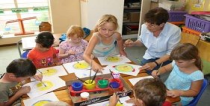The Real Victory: How Homeschoolers Changed the Conversation
Since 2017, thousands of homeschoolers and organisations across South Africa have fiercely opposed the BELA Bill (now an Act). Letters were written, testimonies given, and public hearings filled with parents determined to defend their right to educate their children at home.
On paper, few words in the final Act reflect their input. Many concluded that government had won — and that home educators had lost. But the real victory is not found in the text of the law. It lies in how homeschoolers changed the conversation itself — in government, in Parliament, and within their own communities.
Words vs. Meaning
The previous South African Schools Act was riddled with vague, contradictory, and unenforceable provisions. For decades, this gave parents confidence to home educate without registering under Section 51. The BELA Act aimed to close these “loopholes.” Some now argue that this leaves no reason not to comply.
Yet the opposite is true. The new version introduces even more constitutional contradictions and ambiguities. A detailed analysis of these flaws can be found here:
Defending the Undefendable: Can Section 51 of the BELA Act Be Justified?
Parliament was told that Section 51 was designed to make it difficult for learners to leave school. Officials now claim it was meant to make it easy to return to school. This reframing has major implications: if Section 51 is best understood as applying to learners intending to return to school, then families choosing home education as a long-term path should instead fall under Section 4 exemptions — just as certain Muslim schools do.
Officials also claim that registration exists to “protect vulnerable learners.” If that’s accepted, then registration should be voluntary — reserved for families needing support, not imposed on those already thriving independently.
From Prosecution to Support
In 1993, parents Andre and Bokkie Meintjies were imprisoned for keeping their children out of school. The state’s position was clear: home education would not be tolerated.
But the pressure from parents changed that. By 1996, Section 51 was added to the Schools Act. The law still required registration, but it was a recognition — however limited — of home education’s legitimacy.
Over the decades, the state’s posture softened further:
- 2001: Attempts to arrest a home educator failed, and prosecutions ceased.
- 2004: Officials spoke confidently of prosecution but took no action.
- 2011: The tone shifted to concern about educational quality.
- 2014: When the Western Cape proposed a restrictive policy, public backlash led MEC Donald Grant to withdraw it within weeks. His successor, Debbie Schäfer, reframed the issue around learner protection, not punishment.
- 2017–2022: Massive public resistance to the BELA Bill forced Parliament and the DBE to acknowledge that home education is a legitimate and growing sector.
By the time the BELA Act was passed, officials repeatedly assured parents that there was no intention to prosecute, only to “support” families. From criminalisation to collaboration — that is not defeat; it is transformation.
The Limits of Enforcement
Even when home education was banned outright, it took the state five years to secure one conviction. Today, prosecuting parents for “administrative negligence” — failure to register — would be far more difficult. The detailed reasons for this are explored here:
Budget constraints make enforcement even less likely. Education departments struggle to manage schools, let alone police private households.
Changing the Movement Itself
Public participation did not just influence government — it reshaped the homeschool movement. Parents who stood up in public hearings, wrote letters, and spoke before Parliament discovered their own voice. They articulated principles of parental authority, questioned bureaucratic power, and connected with others who shared their convictions.
Many came to realise that this struggle was not just about homeschooling — it was about freedom, family, and the limits of state control. The campaign turned thousands of ordinary parents into articulate defenders of liberty.
The Real Victory
While the BELA Act’s words may appear more restrictive, the state’s will and means to enforce them have steadily eroded. Meanwhile, homeschoolers have grown more united, informed, and courageous.
The BELA campaign changed the narrative — from one of compliance and control to one of support, protection, and parental rights. It exposed contradictions in the law, softened official attitudes, and empowered families to stand firm.
In that sense, the homeschool movement has already achieved what no amendment could:
It changed the conversation — and that is the real victory.

Events
Has no connect to show!
Legal & Research
Homeschooling and the law
Home schooling was recognized in 1996 in Section 51 of the SA Schools
+ ViewCentres
Homeschool ABC
Support
Curriculums
My Pals are Here! Primary Maths
My Pal are Here! Primary Maths Homeschooling parents, are ...
Cambridge & International ...
As of 1 January 2025, Macmillan Education is the sole agent ...
Frequently Asked Questions
-
How does homeschooling work?
Homeschooling is different for every family as it depend on the parents educational goals for their children Education is the development of the...
-
Where can I find homeschool support groups?
There are many support groups consisting of parents that do things together and help each other. These groups operate on Facebook, mailing lists and...
-
Is home education often used as a smoke screen to hide child neglect?
State interference in home education is often justified as something that can identify situations where home education is used as a smoke screen to...
-
Do homeschoolers take holidays?
Yes, they take breaks. Some homeschool families follow the public school year calendar especially if they are involved in sport and music...




































Comments